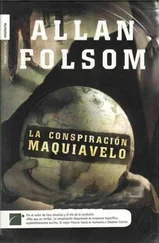Where he was now was as much a mystery as where the river had deposited him in the middle of the night. How he had found his way from the river to this thicket of mangroves in the dark-walked, crawled, swam-he had no idea. What he did know was that the river had been fresh water, and the water here was salt. It meant, with the wash of incoming tide, he was somewhere close to the sea.
He moved out from his jail-like habitat to find more of the same. Mangrove trees, he knew, grew where few, if any, other trees would survive, in areas inundated by saltwater. It was the high roots themselves that extruded the salt, which later would be secreted through cells on their leaves. But while it was the roots that protected the plant from the salt, right here and now those same roots were the problem because Marten was surrounded by them in every direction. Whichever way he chose to go, if it was wrong, he would go deeper into the swamp and maybe never find his way out. On the other hand, the tide was coming in and he could see high-water marks where the roots crowned above him, meaning that soon he would have no place to go but up into the trees themselves. He and thousands of crabs and snakes or anything else trying to escape rising water.
Again he watched the flow of the incoming tide, the way it carried in from the left across his feet and then washed back out. The tide was coming in from the sea and washing out to the sea. If he were to reach it, that was the direction he should go. Just how far it was or how long it would take to get there, he had no way of knowing.
Abruptly he turned and followed the tide. Crouching, ducking, twisting, sometimes crawling, he fought his way through mud and crabs and mangroves for ten minutes and then fifteen and then fifteen more. In that time the water rose from ankle level to just below his knees. In the early light he saw nothing but mangroves and the crabs that had climbed their roots.
Then something hard bumped into him. And he turned to see a large piece of floating driftwood, part of a dead tree. Like everything else it was covered with crabs. He started to push it away, then suddenly froze in horror. Entrapped in its branches were the bodies of a native woman and three young children, the oldest five at the most. All four had had their throats cut, and the crabs were hungrily scuttling in and out of the wounds carrying off what pieces of human loot they could.
A surge of tide pushed the log against Marten once more. Quickly he shoved it aside and moved on. The woman was dead, the children were dead, there was nothing he could do except say a prayer for them and wonder if they had been from Father Willy’s village and if he had known them. God, he thought, what are these people doing to each other? And are the SimCo mercenaries making it worse?
Little by little the sky grew brighter, making the canopy of mangroves seem even thicker than before. It was already hot, and the air was a shroud of humidity. Mosquitoes began to swarm, and Marten swatted at them as he went. He was thirsty and hungry and increasingly apprehensive. For all he knew he might have only begun to cross the swamp. It could stretch on for miles before it reached the sea. He began to wonder if he was a fool to try to cross it. How long would it be before his legs gave out or he lost his bearings and turned back the way he had just come? Or stumbled into quicksand, which he knew could be anywhere?
He stopped and looked back. Retracing his steps could be as treacherous as moving on. Even if he made it back to the river he would only have to find another way out. That was if he didn’t run into soldiers first. No, it was best to trust his instincts and keep on the way he was, following the incoming tide.
Ten minutes more and the first sun of the day cut a swath across the trees above him. Another ten and it hit him squarely in the face. In that moment he knew he was looking due east. It meant he was headed toward Bioko’s eastern shore. A half hour later he stopped and shaded his eyes. When he did, the breath went out of him. Through the trees he could see the ocean, its low breakers rolling in beneath a cloudless sky.
“Yes! Yes!” He let out an explosive cry of joy and relief.
Wet, bone weary, hungry, battered, torn, and thirsty, whatever he had done, however he had done it, however far he had come, he had crossed the never-ending prison of mangroves and made it out of the swamp. At that moment nothing in his life had ever seemed more wondrous than the sight of the sandy beach and the rolling sea before him.
For a while he simply sat and rested. Finally he stood and looked left, toward the north. A half mile or so up he could see the rusting hull of what once must have been a coastal freighter buried in the sand. All that was left now was the stern and a piece of bow, connected by what remained of its midsection. Beyond it stretched miles of beach. Nowhere did he see a sign of humanity. No village, no fishermen, no boats at anchor. No person or thing that might provide water and food or help him get to Malabo at the northernmost tip of Bioko. All that had happened, it seemed, was that he had traded the endless maze of the mangroves for miles of uninhabited, desolate beach. It made his fate nearly the same as before. Put one foot in front of the other and move on.
He looked at his watch.
7:48 A.M.
A glance at the cloudless sky, a deep breath, and he stepped off.
11:27 A.M.
“Look!” Twenty-four year-old Luis Santiago cried out in Spanish. He was staring off through the high grass and toward the ocean. Immediately his companions, Gilberto, Rosa, and Ernesto, rushed to join him.
“Marita!” Rosa called over her shoulder to the group’s leader, a young Spanish doctor hunched over the hood of one of two aging, mud-splattered Toyota Land Cruisers looking over a map with two uniformed native guides.
“What is it?” she called back in Spanish.
“A man on the beach!”
Marita turned to look.
“There.” Luis pointed toward the sand.
Marita Lozano shaded her eyes. At first she didn’t see him, and then she did: a lone man in the distance staggering along the beach near the water’s edge. They were at the side of a mud-rutted dirt road a good fifty yards from the shoreline and probably not visible through the tall grass from where the man walked. He was moving slowly and more than once stopped to look around as if he were trying to get his bearings. Then he moved on, his gait unsure, his balance unsteady. Finally he stumbled and fell and then lay still.
“Quickly!” Marita shouted. “Quickly! Quickly!”
The group rushed forward.
Nicholas Marten was in and out of a dream. He thought he saw the face of a beautiful young woman staring down at him. Then she was replaced by a young man with a canteen trying to hold him up and give him water. Then he saw two sturdy black men dressed in uniforms trying to help him to his feet. After that everything faded and he was in England, arriving midday and by rental car at some grand country manor-the Fifield estate near the city of Oxford. The blue sky was mottled with white puffy clouds, the surrounding trees and rolling lawns of Fifield, a bright early-summer green.
Soon he was past a phalanx of men in dark suits and sunglasses, and quickly afterward smiling, shaking hands, and then bear-hugging a tall, elegant, silver-haired man he affectionately called “Cousin Jack”; the same man who, with like affection, called him “Cousin Harold.” The same man who knew what few others anywhere in the world did, that at one time not many years earlier he had been a Los Angeles Police Department homicide detective named John Barron, a member of an elite squad that had disintegrated in a complex circumstance of murder and horror. Faced with the threat of lethal reprisals from dark forces inside the LAPD, he had changed his name to Nicholas Marten and fled with his sister to a new life in Europe: his sister as governess to a wealthy family in Switzerland; he at first as a student of landscape architecture at the University of Manchester in northern England, and then as a professional landscape architect and full-time employee of the respected firm of Fitzsimmons and Justice in that same city.
Читать дальше












